Homesteading with Goats: Tips for Raising and Caring for Your Own Herd
Homesteading with goats can be a rewarding and fun experience. Goats are friendly, intelligent, and provide a variety of benefits to your homestead. They are known for their milk, meat, and fiber, making them a versatile addition to any farm.
Before you start homesteading with goats, it’s important to consider the space and resources you have available. Goats require a certain amount of space to roam and graze, and they need access to fresh water and shelter. You’ll also need to consider the type of fencing you’ll need to keep them safe and secure.
Once you have the space and resources, there are many benefits to homesteading with goats. Not only do they provide milk and meat, but they can also help with weed control and fertilizing your land. They are also great companions and can bring joy and entertainment to your homestead. With proper care and attention, goats can be a valuable and enjoyable addition to your homesteading lifestyle.
Why Homesteading with Goats is Beneficial
If you’re considering homesteading, adding goats to your herd can be a great decision. Goats are a versatile and valuable addition to any homestead, providing a range of benefits that can improve your self-sufficiency and quality of life.
One of the primary benefits of homesteading with goats is their ability to produce food. Goats are an excellent source of milk, which can be used to make cheese, yogurt, and other dairy products. They also provide meat, which is high in protein and can be a valuable addition to your diet. Additionally, goats can produce fiber, which can be used for clothing and other textiles.
In addition to their food production capabilities, goats are also relatively low-maintenance. They don’t require as much space as other livestock, and they are generally easy to care for. However, it’s important to ensure that they have access to shelter, fencing, and water, as well as companionship and entertainment.
Another benefit of homesteading with goats is their ability to help with gardening. Goats are natural grazers and can help keep weeds under control in your garden. They also produce manure, which can be used as fertilizer to improve soil quality.
Finally, goats can be a budget-friendly addition to your homestead. While there are some initial costs associated with purchasing goats and setting up their living quarters, they can ultimately save you money on food and other household expenses.
Overall, homesteading with goats can be a rewarding and beneficial experience. Whether you’re looking to produce your own food, improve your garden, or simply enjoy the companionship of these friendly animals, goats are a valuable addition to any homestead.
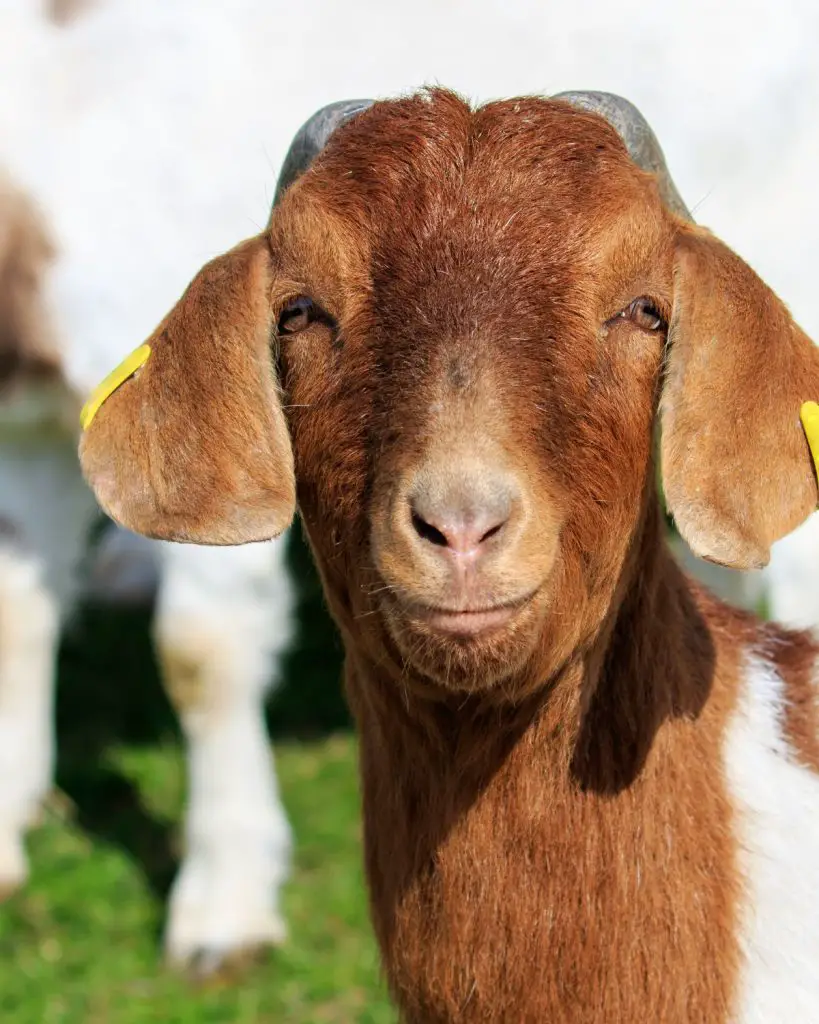
Getting Started with Raising Goats
If you are interested in homesteading with goats, there are a few things you need to know before getting started. Raising goats can be a rewarding experience, but it requires some preparation and knowledge. In this section, we will cover the basics of getting started with raising goats.
Choosing the Right Goat Breed
Choosing the right goat breed is an important first step in raising goats. There are many different breeds of goats, each with their own characteristics and uses. Some breeds are better for milk production, while others are better for meat. Some popular dairy goat breeds include Alpine, Nubian, and La Mancha. For meat production, the Boer and Kiko breeds are popular choices. If you are interested in fiber production, breeds like the Pygora and Cashmere goats are good options. For a backyard homestead, the Nigerian Dwarf breed is a popular choice due to their small size and easy-to-manage nature.
Setting Up Your Goat Shelter
Goats need a shelter to protect them from the elements. A goat shelter can be a stall in a barn or a simple shed. The shelter should be dry, well-ventilated, and free from drafts. Bedding should be provided for the goats to sleep on, and the shelter should be cleaned regularly to prevent the buildup of manure and urine.
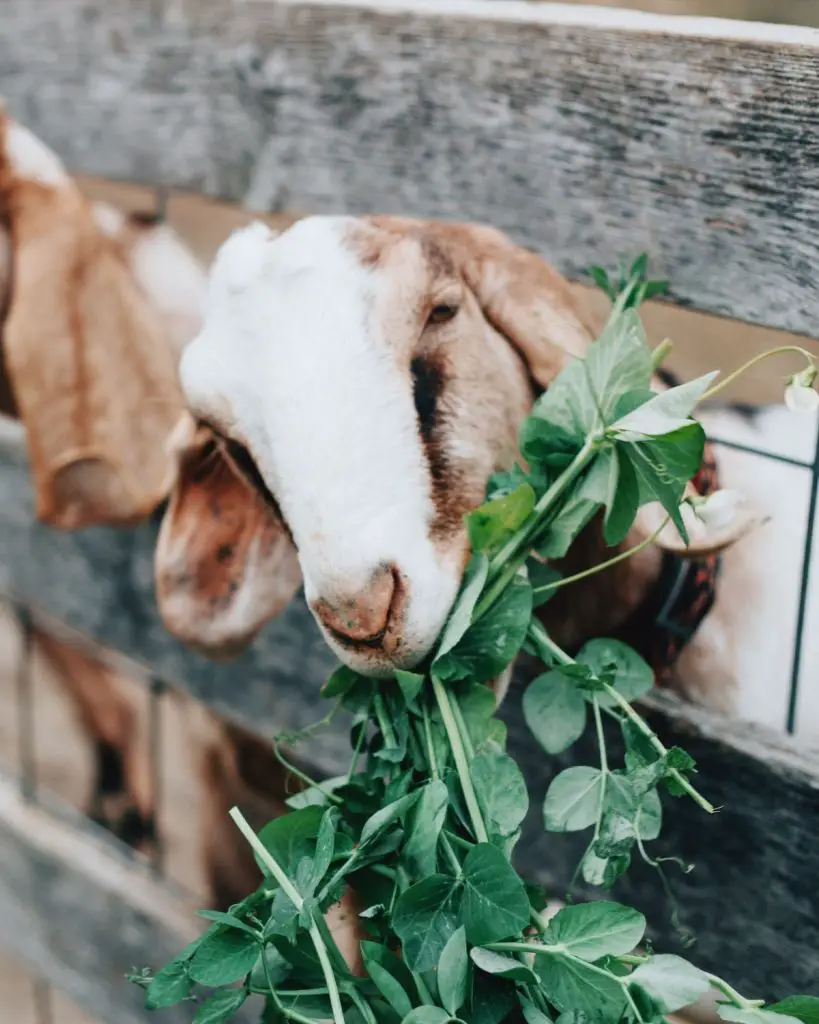
Fencing Your Goat Pasture
Fencing is an important consideration when raising goats. Goats are known for their ability to escape, so good fencing is essential. A fence should be at least 4 feet tall and made of sturdy materials like woven wire or electric fencing. The fence should also be buried at least 6 inches into the ground to prevent goats from digging under it.
Providing Adequate Feed and Water
Goats need access to clean water at all times. They also require a balanced diet that includes hay, browse, and possibly supplemental feed like alfalfa or minerals. It’s important to provide enough feed for your goats, but not to overfeed them. Overfeeding can lead to health problems like obesity and internal parasites.
In summary, getting started with raising goats requires careful consideration of breed selection, shelter, fencing, and feeding. With proper planning and preparation, raising goats can be a rewarding experience for homesteaders. Remember to always provide your goats with the care and attention they need to thrive.
Breeding and Kidding Goats
Breeding and kidding goats is an essential part of homesteading with goats, whether you are raising them for meat, milk, or fiber. In this section, we will cover the basics of breeding and kidding your goats, including preparing for kidding, assisting with the process, and caring for newborn kids.
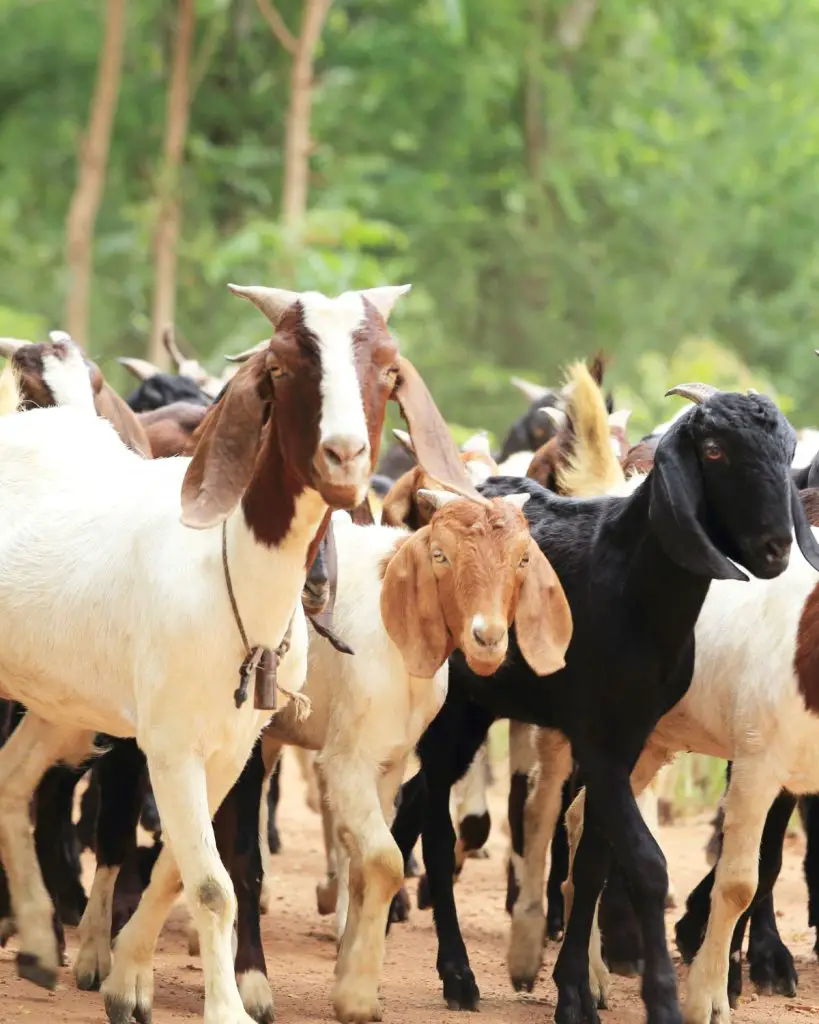
Breeding Your Goats
Breeding your goats involves selecting the right breeding pair and timing the breeding correctly. You should only breed healthy does and bucks that meet your breeding goals. If you are breeding dairy goats, you will want to select a buck that comes from a line of high milk producers. If you are breeding meat goats, you will want to select a buck that has good meat characteristics. Nubian goats are known for their high milk production, while Pygmy goats are gentle and make great pets.
Goats can breed throughout the year, but it is best to breed them during the breeding season, which typically starts in the fall. You should keep a breeding schedule and record the breeding dates to ensure that you have a consistent kidding season.
Preparing for Kidding
Before kidding, you should prepare a clean, dry, and warm kidding area for your doe. You should also have a birthing kit ready, which should include clean towels, gloves, scissors, iodine, and a thermometer. You should separate the doe from the rest of the herd a few weeks before kidding to reduce stress and ensure that she gets enough nutrition.
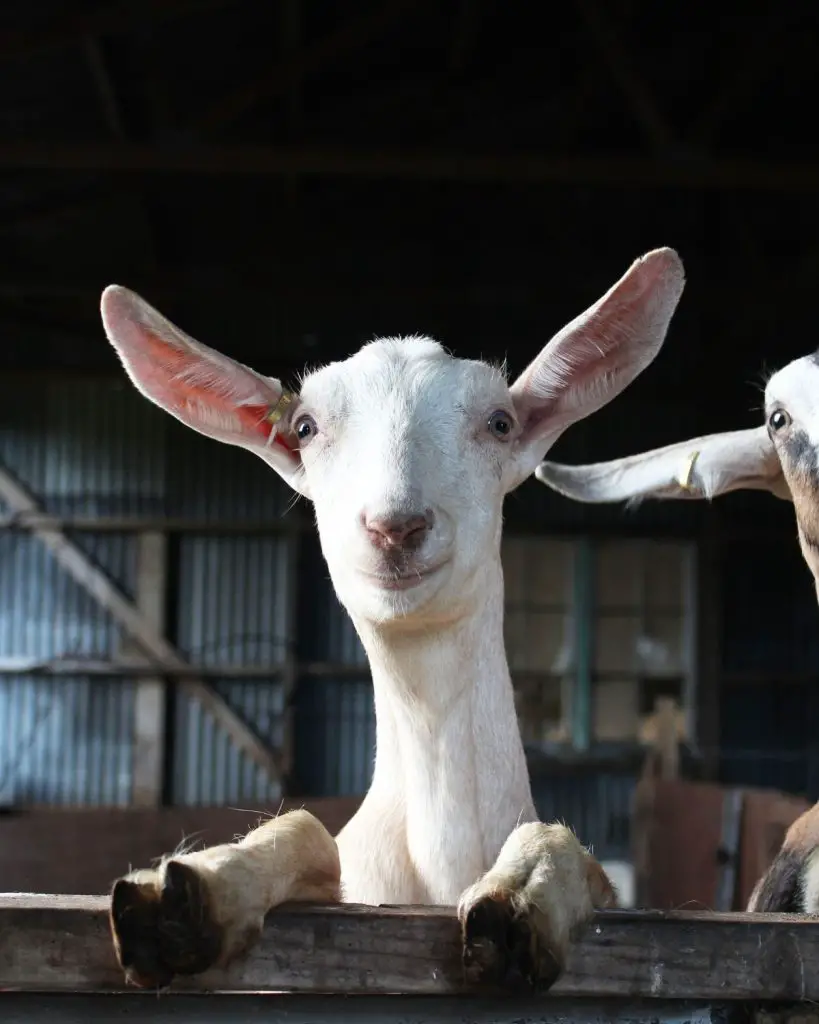
Assisting with Kidding
Most of the time, your doe will give birth without any problems. However, you should be prepared to assist if necessary. Signs that your doe is about to give birth include restlessness, pawing the ground, and vocalization. When the kid is born, you should clean its nose and mouth, tie off the umbilical cord, and dip it in iodine to prevent infection.
Caring for Newborn Kids
After kidding, you should ensure that the kids are nursing and getting enough colostrum, which is essential for their immune system. You should also weigh the kids and monitor their health and growth. If you are raising dairy goats, you should separate the kids from the doe after a few days to prevent them from drinking all the milk. You can bottle-feed the kids with milk replacer or milk from the doe if you are milking her.
In conclusion, breeding and kidding goats is an essential part of homesteading with goats. By selecting the right breeding pair, timing the breeding correctly, and preparing for kidding, you can ensure a successful kidding season. Remember to monitor your doe during the kidding process and care for the newborn kids to ensure their health and growth.
Milking Your Goats
Milking your goats is an important part of homesteading. It provides you with fresh, raw milk that can be used for a variety of purposes such as making butter, yogurt, and cheese. In this section, we will cover the basics of milking your goats.

Preparing for Milking
Before milking your goats, you need to make sure that you have everything you need. Here are some things that you will need:
- Sterilized basin
- Teat dip
- Milk stand
- Clean towels
- Feed for your goats
Make sure that your goats are clean and dry before milking. You can wash their udders with warm water and mild soap. Dry them off with a clean towel.
Milking Your Goats
To milk your goats, you will need to use a milk stand. This will make it easier for you to milk them and prevent them from running away. Here are the steps to milking your goats:
- Place your goat on the milk stand.
- Wash the udder with warm water and mild soap.
- Dry the udder with a clean towel.
- Apply teat dip to each teat.
- Place the milking bucket under the goat’s udder.
- Squeeze milk down by clamping at the top with your thumb and index finger.
- Repeat this process until you have collected the desired amount of milk.
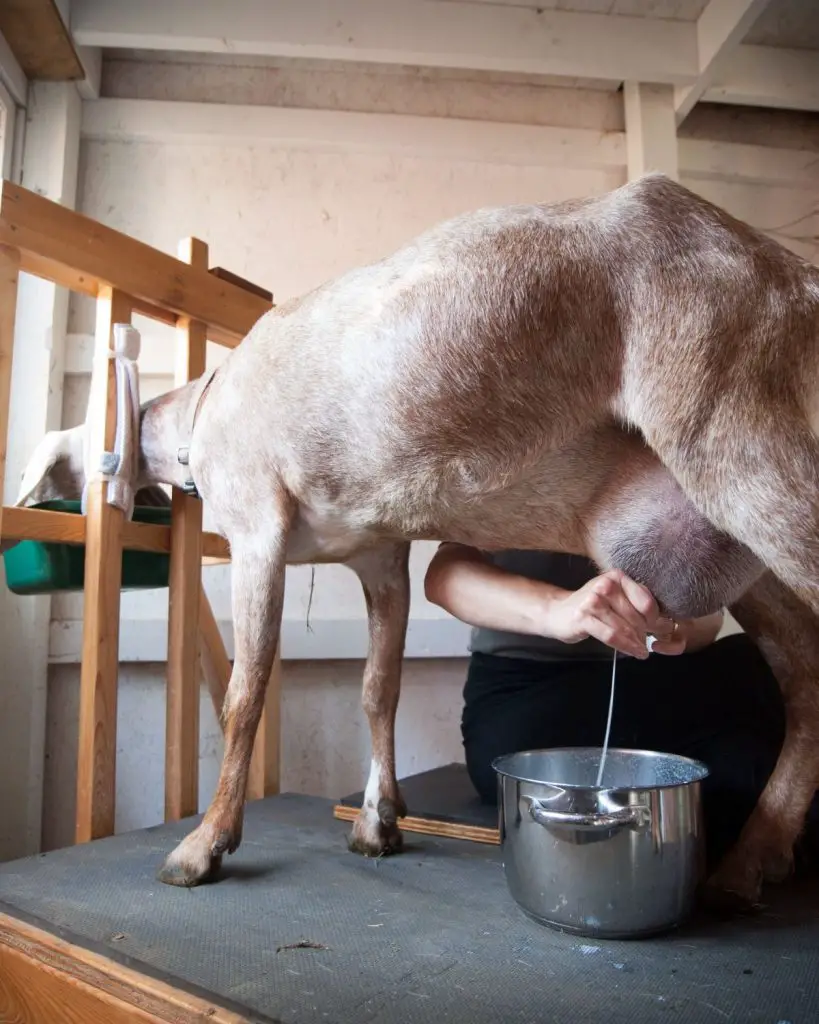
Storing and Using Goat Milk
Once you have collected the milk, you need to store it properly. Raw goat milk should be refrigerated immediately after milking. It can be stored in the refrigerator for up to one week.
Goat milk can be used for a variety of purposes such as making butter, yogurt, and cheese. It has a unique flavor that is different from cow’s milk. Some popular dairy goat breeds include Nubian, Alpine, and Saanens.
In conclusion, milking your goats is an important part of homesteading. With the right equipment and knowledge, you can enjoy fresh, raw goat milk that can be used for a variety of purposes.
Caring for Your Goats
When it comes to homesteading with goats, taking care of them is essential. Here are some tips on how to care for your goats to ensure they are healthy and happy.
Feeding Your Goats
Goats are ruminants, which means they need a diet that is high in fiber. Providing them with good quality hay and browse is essential. You can also supplement their diet with goat feed that is high in protein and minerals. Make sure to provide fresh, clean water at all times.
Providing Adequate Water
Water is crucial for the health of your goats. Make sure your goats have access to clean and fresh water at all times. You can use automatic waterers or buckets to provide water. Ensure that the water source is not contaminated with rot or iron, which can harm your goats.
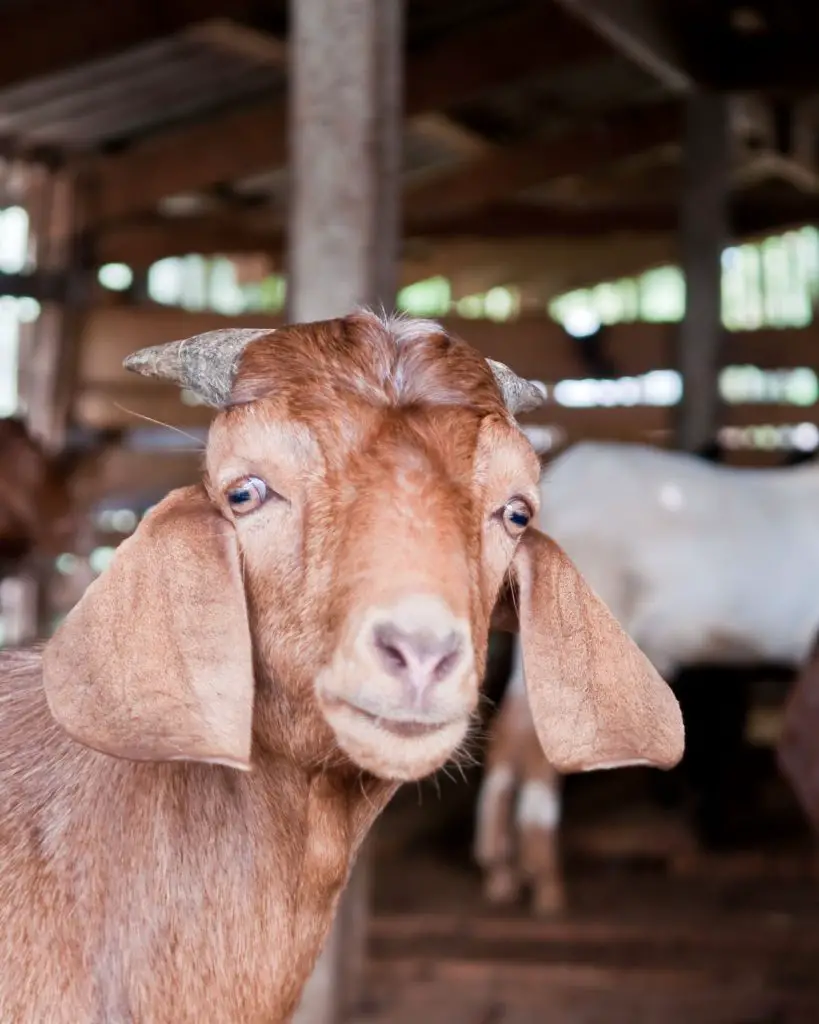
Managing Goat Health
Regular health checks are important to ensure that your goats are healthy. Look out for signs of sickness such as lethargy or loss of appetite. If you notice any symptoms, contact a veterinarian immediately. Avoid using antibiotics or hormones unless it is necessary for the health of your goats.
Shearing Your Goats
Shearing your goats is important to keep them cool during the summer months and to harvest their fiber. Use a milking stand to make shearing easier and safer for both you and your goats. Establish a regular shearing routine to keep your goats healthy and comfortable.
In conclusion, caring for your goats is essential to ensure their health and happiness. By providing them with good quality food and water, regular health checks, and proper grooming, you can enjoy a thriving homestead with happy goats.
Keeping Your Goats Safe
As a homesteader, the safety of your goats is paramount. Here are some tips on how to protect your goats from predators and prevent goat diseases.
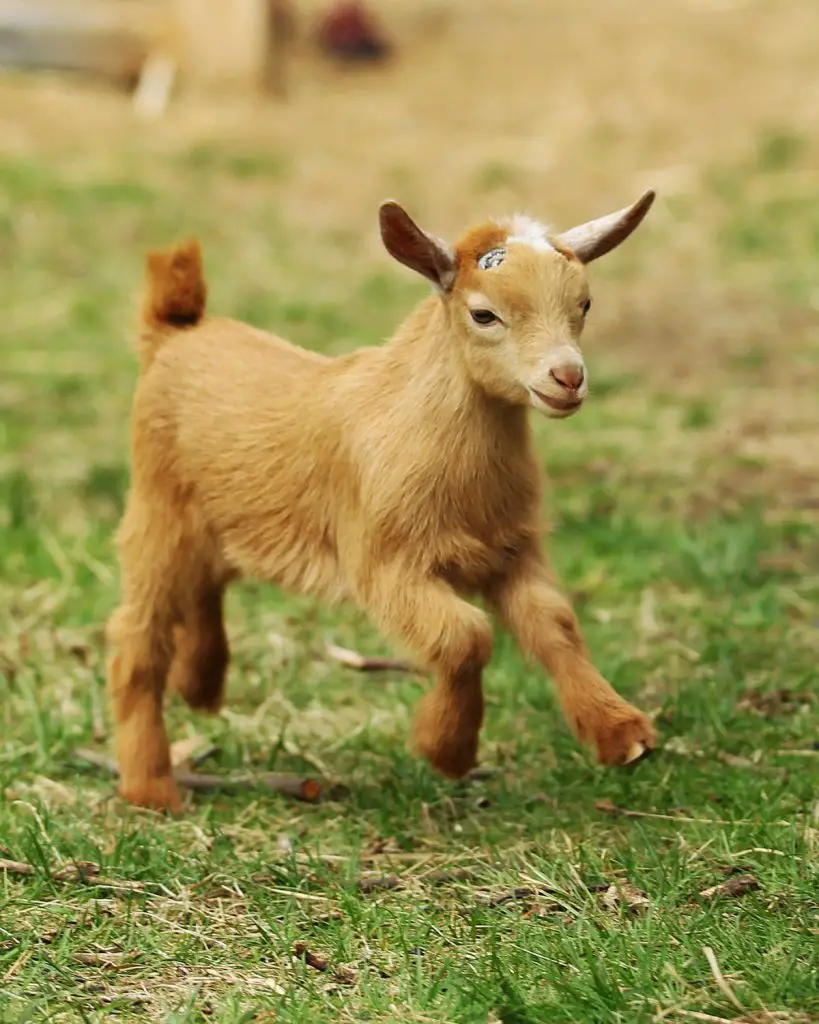
Protecting Your Goats from Predators
Goats are prey animals and are vulnerable to attacks from predators such as coyotes, wolves, and even domestic dogs. Here are some ways to protect your goats from predators:
- Fencing: A sturdy fence is essential to keep predators out. Goat fencing should be at least four feet tall and five feet for larger and more energetic breeds. You can purchase goat fencing or use other types of fencing such as woven wire, electric, or chain link. Make sure the fence is buried at least 6 inches in the ground to prevent predators from digging underneath.
- Companionship: Goats are social animals and feel safer in a herd. Consider keeping more than one goat to provide companionship and protection.
- Livestock companions: Consider adding other livestock companions such as cattle, sheep, or chickens. These animals can help protect your goats by alerting them to danger and providing a united front against predators.
Preventing Goat Diseases
Internal parasites are a common problem in goats and can cause serious health issues. Here are some ways to prevent goat diseases:
- Pasture rotation: Rotate your goats to different pastures to prevent the buildup of parasites. This will also give the pasture time to rest and recover.
- Regular deworming: Deworm your goats regularly to prevent the buildup of parasites. Consult with your veterinarian to determine the best deworming schedule for your goats.
- Clean living conditions: Keep your goat’s living area clean and dry to prevent the spread of disease. Replace bedding regularly and remove any feces or urine promptly.
By implementing these tips, you can ensure the safety and health of your goats on your homestead.
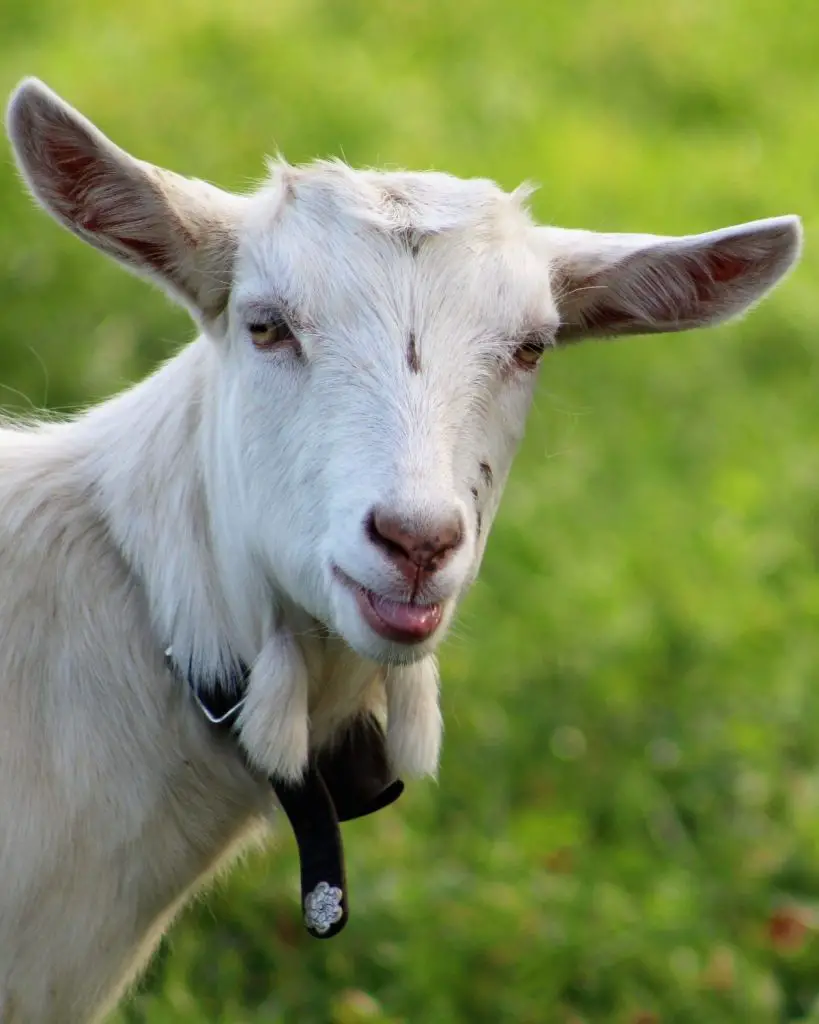
You may also enjoy these related articles:
- 10 Essential Tools for Homesteading Success – Don’t Miss Out!
- Homesteading on a Budget: How to Save Money and Live Your Dream!
- 10 Must Have Homestead Tools
Did you enjoy this article? Want to hear more? Stay in touch! Sign up below to receive weekly tips and inspiration for your homestead.

